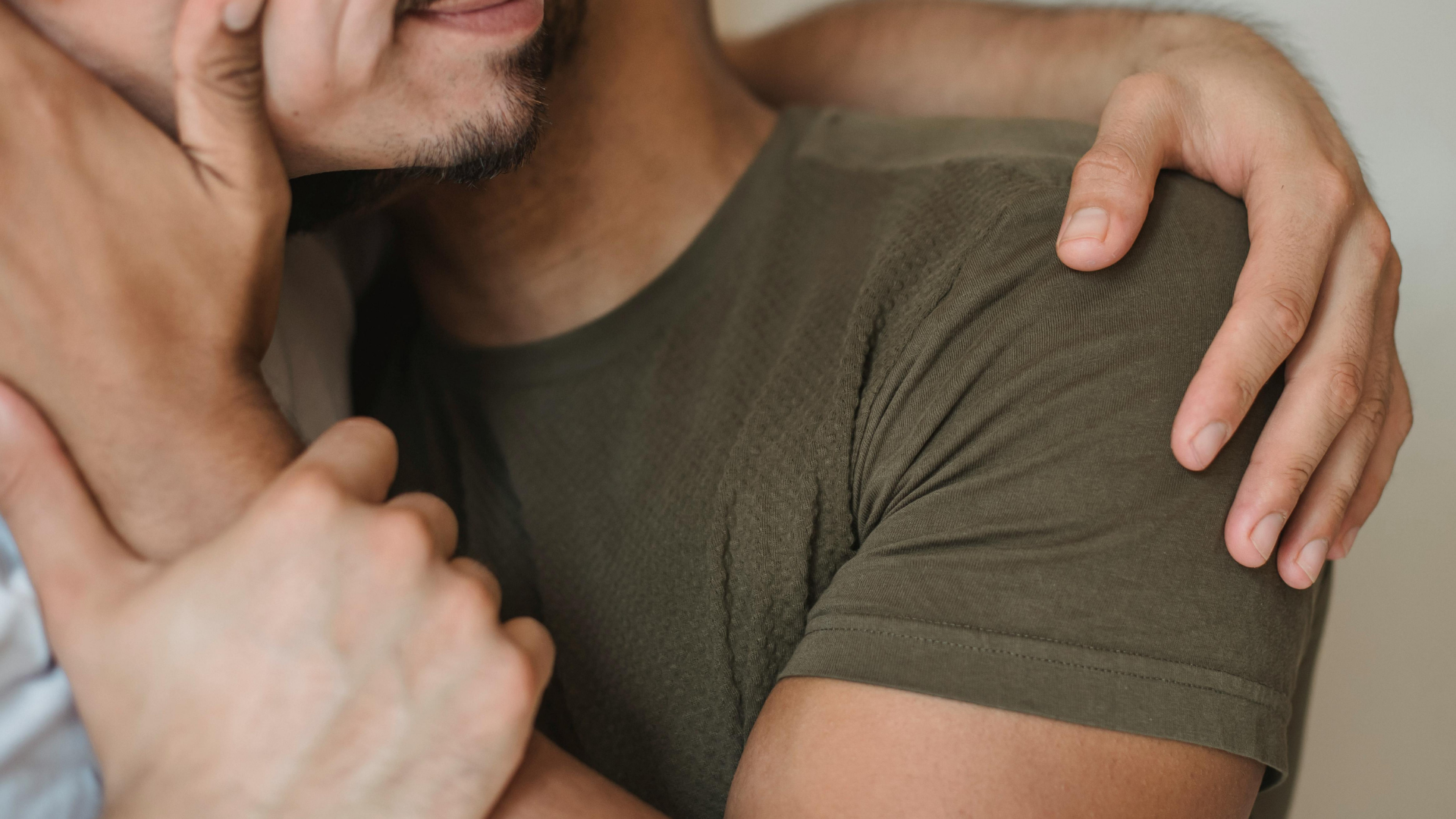Ditch Diet Culture: How Intuitive Eating & Therapy Improve Mental Health
A few years ago “body positivity”, “Intuitive Eating”, and “diet culture” were all buzz words that a lot of people got really curious about. Now that the “skinny” is back “in,” as seen in the rise of content on social media (I’m looking at you, SkinnyTok) these words are losing steam which makes it challenging for a lot of people who are looking to find a healthy relationship with food and feel at home in their bodies.
So, if you’re curious about what Intuitive Eating really is, and how it can be helpful for anybody on a mission to ditch diet culture, come along! As a therapist, I will provide insight about how I utilize Intuitive Eating from my mental health lens to help you heal your relationship with food, which will certainly differ from a dietitian’s point of view. It is important to understand that my limitations here are where a dietitian or nutritionist will thrive – I’m less knowledgeable about all aspects of nutrition and more about the impact of diet culture on mental wellness.
Curious about what a dietitian or a nutritionist does? Read more here.
Start Your Intuitive Eating Journey
Amy’s Story: A Therapist’s Perspective on Intuitive Eating and Mental Health
For the purposes of maintaining client anonymity, this is a description of a typical client, using an amalgamation of different clients and no real names/people/places.
Amy is a 30 year old woman who, for the most part, feels like she is doing well in life. She has a partner, a job she mostly enjoys, and a good social support network. She is successful and confident in many aspects of her life – except for one: food and her body.
Amy grew up with a mother who did Richard Simmons’ Sweatin’ to the Oldies and preached the merits of slimfast. Her aunt always talked about her “love handles” and how she needed to lose at least ten pounds before the summer. They never said anything to Amy about her body, but she got the gist. Lose weight, feel confident. Gain weight, feel ashamed.
Because of all of the contrasting food rules (Are carbs good? Will fat make me fat?), Amy has been on and off of every diet you can think of, and feels completely lost with the cycles of restriction and over-eating. She hears about this thing called Intuitive Eating and wonders if she could ditch diet culture for good and heal her relationship with food. That’s when she reaches out to me – feeling completely lost about what is “right” when it comes to how to eat and how she feels about her body.
What Is Intuitive Eating and How Does It Work?
Intuitive eating is a non-diet approach to food that helps you rebuild trust with your body by listening to internal hunger, fullness, and satisfaction cues instead of following external diet rules.
Intuitive Eating was created by Evelyn Tribole and Elyse Resch. They understood as dietitians that people would not get better if they had strict food rules and that a lot of people with strained relationships with food had a pattern of not listening to their internal cues to understand what or how to eat. With a lot of research and work with people, they created the Intuitive Eating approach. Their core philosophy is all about rejecting diet culture and embracing body trust to heal your relationship with food. While this sounds easy, it is not, which is why they created the 10 Principles of Intuitive Eating which help intuitive eaters unlearn these rules that diet culture has tried to teach us all.
The 10 Principles of Intuitive Eating Explained
Reject the Diet Mentality
Rejecting the diet mentality means that we have to understand that diet culture, particularly restrictive eating and the impossible body standards that have been set, are harmful. Not only are they impossible to maintain long term. But they wind up doing psychological and physiological damage.
Honor Your Hunger
Due to rigid diet rules, our intellect starts to override simple cues to eat. Instead of judging hunger, we need to understand that it is simply a cue to feed ourselves, just as needing to pee is a simple cue to use the restroom. Trying to figure out your hunger and fullness cues? Charts like these can be really helpful.
Make Peace with Food
Food is morally neutral. Cookies, strawberries, spinach, pasta, cheese, cake, chicken, rice – it all fits. We don’t need to have these judgments about what we are eating as it creates a sense of restriction and fear around food, making it hard to “drop in” to our bodies to see how food is actually affecting us.
Challenge the Food Police
Usually the culture at large or harsh family members are the first food police people we have. The food police quickly and sneakily morphs into the voice in our heads telling us that we are “disgusting” for eating that extra piece of cake, for example. Long story short: the food police has got to go.
Discover the Satisfaction Factor
Satiety is an important piece of the eating puzzle and helps us to feel full. The way our food looks, feels, tastes, and smells are all components of a satiating meal or snack. Here are some easy tips for increasing your satiety at meals.
Feel Your Fullness
Just as we can lose touch with our sense of hunger, we can lose touch with fullness. Due to patterns of bingeing or “spacing out” while we are eating, we don’t realize how full we are until we have eaten past full. It is important to note that Intuitive Eating is not a “hunger and fullness” diet, and that eating past full on occasion is normal.
Cope with Your Emotions with Kindness
This is where we really look at emotional eating and how to meet your needs in other ways. This one can be tough, especially because eating to cope becomes a highly effective, quick, and easy way to soothe. It creates really strong neural pathways in the brain that need some assistance being challenged. This is why being able to truly feel your emotions helps reduce emotional eating. Need help with this? Reach out to us to start your therapy journey!
Respect Your Body
One of my favorite pieces of literature to understand this more is the book Body Respect, created by Linda Bacon, who also wrote Health at Every Size. A question I commonly have my clients stop and ask themselves when they are feeling lost with the Intuitive Eating process is “Is this behavior or thought respectful of my body? If not, how could I change that?”
Movement—Feel the Difference
Movement is an important part of being a healthy person. It is necessary for longevity (“a body in motion stays in motion”) and for mental health. While getting in movement every day is helpful for feeling vitality, it can be a fraught topic for those who have had a difficult relationship with exercise and needs to be handled with care.
Honor Your Health—Gentle Nutrition
This one is the last principle of Intuitive Eating for a reason. Thinking about nutrition can feel like restriction unless you have full food freedom, less judgement about how/what/when you eat, and a better understanding of health overall. When a person is ready, looking at how to truly nourish yourself is key.
How Intuitive Eating Improves Mental Health and Reduces Shame
The impacts of chronic dieting and diet culture are many. One of the benefits of Intuitive Eating is that it helps reduce shame and guilt around food. It helps people to have less mental energy taken up by what they are supposed to eat, and instead helps them focus on how their body feels when they eat. People learn to trust themselves and their body to tell them what they need in order to heal their relationship with food, which is a really beautiful thing to see.
One benefit of Intuitive Eating that I often see with my clients is that they feel like they can be more present. Think about all of the times you were on some unnecessarily restrictive diet and couldn’t go out to eat or have drinks with friends, even on special occasions? That is a thing of the past now. Diet culture steals so much time and energy from people, and they get that back.
Somatic Therapy can also be really effective when paired with Intuitive Eating. Learn more >
Intuitive eating might be right for you if you are tired of diet culture and you know you want to stop dieting but aren’t sure where to start.
Signs You’re Ready to Start Intuitive Eating
You are tired of the restrict/over-eat cycle
You know that you want to stop dieting but aren’t sure where to start
You have had it with feeling bad about food choices
You feel frustrated with your body
You aren’t sure what hunger and fullness feel like at this point
You want to set a good example for the kids in your life
If that sounds like you, Intuitive Eating may be the best next step! Understand more about your relationship with food by doing this questionnaire. The best place to go from here is to either start reading the Intuitive Eating book or find an IE practitioner near you!
Start Your Intuitive Eating Journey with Embodied Healing KC
At Embodied Healing KC, we specialize in helping individuals ditch diet culture and heal their relationship with food through a trauma-informed, therapeutic lens. Whether you're new to intuitive eating or feeling stuck in cycles of emotional eating, our licensed therapists offer compassionate, body-centered support tailored to your unique needs. By combining somatic therapy, mental health counseling, and the 10 principles of intuitive eating, we empower you to reconnect with your body, cultivate self-trust, and embrace gentle nutrition without shame. If you're ready to break free from dieting for good and discover a more peaceful way of eating, start your intuitive eating journey in Kansas City with Embodied Healing KC today.
Amy’s Story, Continued
After being in therapy for a while, Amy realized that she was not able to feel her feelings. She discovered that some early experiences in life, combined with her personality, set the stage for her being an over-performer. She found that she was neglecting herself emotionally, which took its toll on her body in many ways. One of these ways was by eating instead of feeling, which lead to some undesired health outcomes. Instead of using the negative voice of diet culture and family members to shame her into “just eating less,” she realized that she needed to have some self-compassion and pay attention to what her long-repressed emotions were. She understood that she now doesn’t need to feel bad about having dessert or eating fast food, but that there are times where her body doesn’t actually want it either and she doesn’t have to eat it out of habit because her emotions are much more taken care of. Most of all, Amy has found that her mind is a more peaceful place to be because she isn’t constantly thinking about food or her body. She understands that coping with food is a simple survival strategy; one that she employs much less often.
Frequently Asked Questions About Ditching Diet Culture with Intuitive Eating
-
Intuitive eating is an approach that encourages listening to your body’s hunger, fullness, and satisfaction cues while rejecting external diet rules. It supports both physical and emotional well-being. Learn More >
-
Intuitive eating reduces shame around food, helps restore body trust, and encourages a positive mindset, all of which support better emotional regulation and reduced anxiety around eating. Intuitive Eating can also be paired with Somatic Therapy. Learn More >
-
The principles include rejecting the diet mentality, honoring hunger, making peace with food, challenging the food police, and respecting your body, among others. They serve as a framework for healing your relationship with food.
-
Yes. Intuitive eating includes “gentle nutrition” as the final step, where food choices are made from a place of self-care—not restriction or guilt.
-
If you're tired of dieting, confused about food rules, or struggling with guilt around eating, intuitive eating might be right for you. A good starting point is recognizing your desire for a more peaceful relationship with food.
Stevie Olson-Spiegel is a Licensed Therapist and Somatic Experiencing Practitioner located in Kansas City. She uses Somatic Experiencing as her main body-based trauma healing modality, as well as EMDR. As an Intuitive Eating Counselor, she uses these principles to help her clients challenge their relationship with their cultural misconceptions about their body and food.








